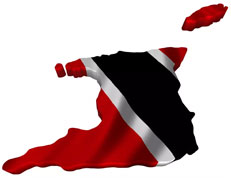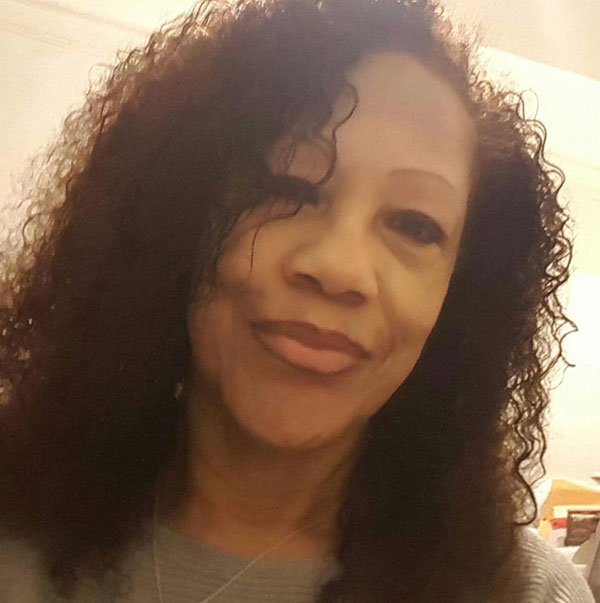Meet Lorna
Lorna Simon Hunte is a dymanic public speaker, trainer and leadership development expert with a passion for equipping individuals and organizations with the tools they ned to thrive in in today’s ever-evolving workplace. With 20+years of e xperience in training and development, Lorna specializes in transforming managers into impactful leaders and fostering accountability driven high-performing teams. 
While Lorna’s career began in the managed care secctor, it has since evolved to encompass countless industries where she leaves positive impacts on the individuals and organizations that she serves. Whether she’s improving corporate processes, mentoring emerging leaders, or inspiring audiences through he thought-provoking workshop series. Lorna is driven by a singular mission: to help others to reach their potential.
Lorna’s career began with a deep passion for supporting individuals and communities through access to high-quality healthcare. Lorna honed her expertise in the managed care fileld which included membership enrollment. eligibility and regulatory compliance at renowned organizations such as Emblem Health Plan, MetroPlus Health Plan, Affinity Health Plan, GHI HMO and Royal Health Care. Lorna quickluy rose through the ranks by inspiring confidence in her teams, empowering leaders to improve workplace relationships, and driving sustainable results that directly impacted the bottom line. During her tenure as Associate Director of Enrollment & Membership at MetroPlus Health Plan, she managed a team of 48 employees and ensured
seamless management of a health plan membership base of 700,00+enrollees. Additionally, ond of her standout achievements in this role was spearheading a majorng a time when she system enhancement project, where she worked cross-collaboratively to develop a cusomized software solution that significantly reduced data processing times and on public assistance to improved enrollment accuracy, cementing her reputation as a leader who could quickly turn a vision into reality..
Lorna is making radical impacts for corporationsby way of he consultancy firm Lornasimonspeaks.com which she founded in 2021. Driven by desire to leave an idelible fiWhen asked about her mark at every turn. Lornasimonspeaks.com is rooted in leadership, training and development with a specialty in the design and delivery of customized
programs tailored to the unique needs of her clients. Lorna provides training and skill development for leaders at all stages trough impactful programs that focus The trainers treated them on building essential competencies, enhancing tam dynamics and driving sustainable results. Lorna facilitates workshops
presentations,and forums that combine actionable insights with engaging delivery, equipping audiences with practial
Read More
But she never went back to America Works as a client again. Her new position sent her to unfamiliar neighborhoods to recruit people for Royal’s services (Health Care Insurance), By the second month, she wasn’t just tired of standing around all day asking people if they wanted health insurance she was also just tired. “I told myself, ‘I am too cute for this,’” she recounted, to laughter.
But she persevered, because she had to. “I was a single parent,” Simon explained, “I had to do what I had to do.” In this moment, the clients in the room went from being a passive audience to an integral part of a conversation. Nods and sounds of agreement echoed throughout the room.
After persevering, something changed. Her numbers improved and she found herself enjoying the work.
As she walked around different communities and talked with people about what was going on with them, their lives, and their children, she discovered that her strength lies in her ability to communicate and understand those around her.
Because her job lined up with her skills, it felt like she could make a difference. It felt like she fit in. Today, Lorna is using her journey to encourage others to make their own success stories.
One of the ways she’s doing that is by taking a tour of America Works offices to speak to current clients. Another is through her current role as a manager of a team. “If I’m busy leading you from the forefront, I can’t see if you fall by the wayside.
That’s my style of leadership.” As a leader of more than 40 people, she aims to create an environment with open lines of communication, understanding, and respect ”I’m big on respect,” she says, “Which means that I give it.”
It’s an environment that sounds similar to the one created by AWNY staff and trainers, that helped Lorna change her perspective all those years ago.
During the event, one of the clients stood up and moved in closer to hear Lorna better. Farther in the back, a bench of mothers whispered amongst themselves. Not because they were distracted, but because hearing Lorna’s story made them reflect upon their own and the things they had in common. For some, that commonality extended to the deeply personal. As the event neared its end, Lorna sat down to let us into one more aspect of her life.
With a profound honesty and commitment to detail, she opened up about her personal experience with Domestic Violence. First, she asked the audience if there was anyone who would be uncomfortable with the topic however no hands went up. Lorna went on to revisit that dark period of her life characterized by running away, being found, running, and lying low once she finally got away. “It feels like you’re always going to be a victim, because it feels like you’re never getting out.” But she did and from then on, she refused to accept that she was a victim.
Eventually Lorna realized that she was making herself a victim so she just changed one word “Victim to Survivor” which impacted the way she viewed and understood what it meant to be “Free”. “I was a single parent,” Simon explained, “I had to do what I had to do.” In this moment, the clients in the room went from being a passive audience to an integral part of a conversation.
Nods and sounds of agreement echoed throughout the room. When Simon shared that she was now not only a proud mother but a grandmother, she had to pause for applause. After persevering, something changed. Her numbers improved and she found herself enjoying the work. As she walked around different communities and talked with people about what was going on with them, their lives, and their children, she discovered that her strength lies in her ability to communicate and understand those around her.
Because her job lined up with her skills, it felt like she could make a difference. It felt like she fit in. Today, Lorna is using her journey to encourage others to make their own success stories. One of the ways she’s doing that is by taking a tour of America Works offices to speak to current clients. Another is through her current role as a manager of a team. “If I’m busy leading you from the forefront, I can’t see if you fall by the wayside.
That’s my style of leadership.” As a leader of more than 40 people, she aims to create an environment with open lines of communication, understanding, and respect ”I’m big on respect,” she says, “Which means that I give it.” It’s an environment that sounds similar to the one created by AWNY staff and trainers, that helped Lorna change her perspective all those years ago.
During the event, one of the clients stood up and moved in closer to hear Lorna better. Farther in the back, a bench of mothers whispered amongst themselves.
Not because they were distracted, but because hearing Lorna’s story made them reflect upon their own and the things they had in common. For some, that commonality extended to the deeply personal. As the event neared its end, Lorna sat down to let us into one more aspect of her life. With a profound honesty and commitment to detail, she opened up about her personal experience with Domestic Violence.
First, she asked the audience if there was anyone who would be uncomfortable with the topic however no hands went up. Lorna went on to revisit that dark period of her life characterized by running away, being found, running, and lying low once she finally got away. “It feels like you’re always going to be a victim, because it feels like you’re never getting out.” But she did and from then on, she refused to accept that she was a victim. Eventually Lorna realized that she was making herself a victim so she just changed one word “Victim to Survivor” which impacted the way she viewed and understood what it meant to be “Free”. “
“I got out too.” The first response came from the other side of the room. “Me too.” Then another, and another. Suddenly, after hearing her story, fellow survivors in the room were eager to respond and show that they, too, had refused to be victims. Lorna gestured towards one of them and asked, “How do you feel?”
The client responded, “Free.” Lorna asked if she could hug her, and the two embraced. Over the span of two hours, the clients in the room heard the story of one of their own who had found not just success, but the place where she felt like she fit in.
Many wanted to know how they could find the same. “You’re all looking at me like, ‘how did she do this? Lorna smiled. “Well, it’s was not easy you still need to put in hard work.”
When asked what the big turning point in her life was, Lorna responds, “I fell in love.” But it’s a different kind of romance than you might expect. “I fell in love with me.” After everything that happened in her life, from leaving behind her homeland in search for the place she was free to be herself; to working multiple jobs as a single mother; to choosing to build a life of independence and dignity for her family, to embracing the opportunities offered to her by America Works, and then Royal Health Care and overcoming the kind of adversity that no human being should have to face,
Hunte is focusing on the strength she gained from it all. For America Works, the event was a testament to the strength that clients exhibit on a daily basis. By providing clients with vital job readiness training, connections to job opportunities, and career counseling, America Works helps to bridge the gap between marginalized populations and the self-sufficiency that dignified employment gives them.
Lorna’s story is one of success, but it is far from the only one. As the event came to a close, many of the clients thanked her. “I really needed to hear that,” one said. “I could hug you.” So she hugged her. In fact, she hugged all of them.
By Angelia Miranda

